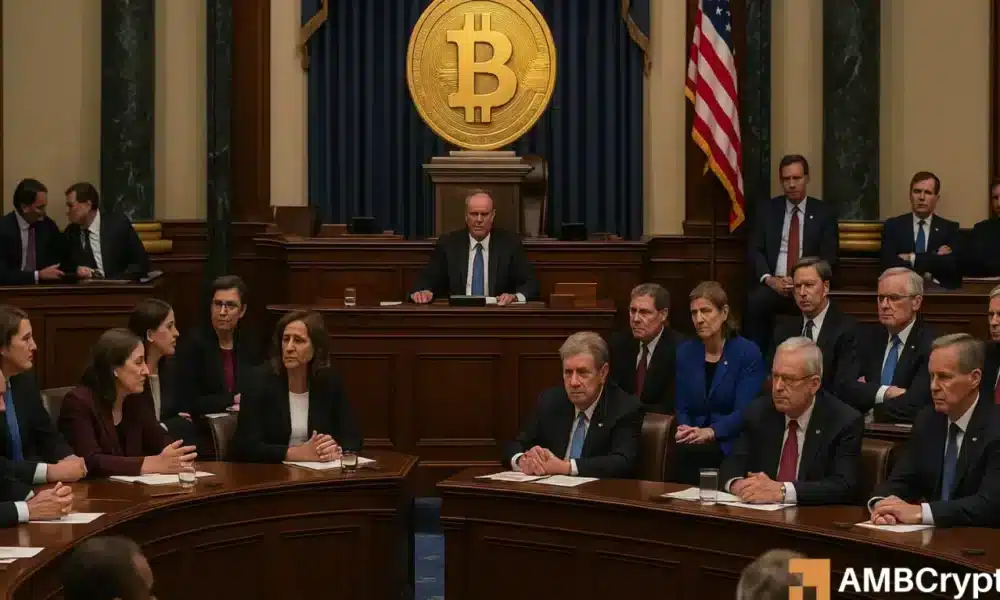
The debate around cryptocurrency regulations in the United States continues to face headwinds as prominent politicians express differing views on a comprehensive crypto framework. Senator John Kennedy recently described the proposed Digital Asset Market Structure Bill as a mere “baby step,” signaling that the U.S. Senate may not be ready to reach a consensus on the issue anytime soon.
Republican Divide Over Digital Asset Regulations
The GOP appears split on how to proceed with cryptocurrency legislation. While some members, including Senator Tim Scott, advocate for fast-tracking the process, others, like Senator Kennedy, remain unconvinced of its readiness. Kennedy’s comments reflect his concerns about the legislation transferring excessive influence to the crypto industry, creating potential risks for the financial system.
With optimism building around the U.S. emerging as a global crypto hub, the Republican Party’s internal disagreements may slow the country’s progress in establishing comprehensive regulations. Kennedy, speaking on the matter, remarked, “I don’t think we’re ready. People that I talk to still have a lot of questions.” These concerns center mainly on the balance between innovation and investor protection.
Competing Legislative Approaches
The proposed bill aims to create a dual regulatory structure, dividing responsibilities between the Securities and Exchange Commission (SEC) and the Commodity Futures Trading Commission (CFTC). While proponents of the framework argue that it establishes much-needed clarity, Kennedy and some Senate Democrats have raised concerns about the framework’s scope and effectiveness.
Senator Tim Scott and his Republican allies, such as Cynthia Lummis and Bill Hagerty, have spent months shaping the legislation. Their guiding principles emphasize classifying digital assets more clearly into securities or commodities, while also enforcing robust anti-money laundering protocols. However, Kennedy dismissed these efforts as inadequate, characterizing them as exploratory rather than decisive.
Democrats and Industry Response
Adding complexity to the debate, Democratic senators have introduced a competing framework, calling for tighter regulations on disclosure requirements and trading platform registration. Moreover, they propose new measures to prevent lawmakers from financially benefiting from digital asset investments, an issue that has raised ethical concerns in the crypto space.
Meanwhile, the cryptocurrency industry has thrown its weight behind legislative initiatives. High-profile names like Brian Armstrong, Coinbase’s CEO, have lobbied for clarity and investor confidence. They argue that the absence of clear regulations leaves both investors and innovators in limbo.
The Road Ahead
In addition to legislative battles, regulators such as the SEC and CFTC are broadening their oversight on cryptocurrency markets. Their aim is to offer improved access to legitimate trading platforms while encouraging trust in digital assets among mainstream investors. However, critics claim that the fragmented approach by lawmakers and regulators could hinder timely progress, allowing other global markets, such as the European Union and Singapore, to take the lead in crypto adoption.
With the U.S. still grappling with internal divisions, it remains uncertain whether a comprehensive crypto market structure bill will be finalized in the near future. As federal and state governments continue to draft policies, the crypto industry is urged to stay informed about ongoing legislative efforts and regulatory updates.
Recommended Product: Ledger Nano X
As crypto regulations evolve, securing your digital assets is critical. Consider investing in the Ledger Nano X, a premium hardware wallet designed to keep your cryptocurrencies safe offline. With top-notch security features, it’s an excellent choice for crypto enthusiasts wanting peace of mind in an uncertain regulatory environment.



